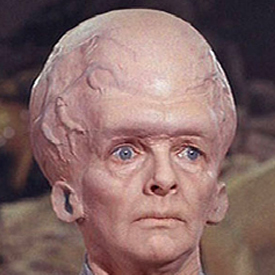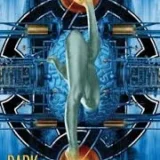Girls just love a bad boy, right? At least that’s what we’re led to believe in Western media. But I’ve never been into the bad boy trope myself (we are momentarily excluding Buffy the Vampire Slayer‘s Spike for a moment here). Still, I have found that I have a fondness for animanga that feature delinquents – both boys and girls. Why?
I think it is very easy to assume, as a Westerner, that all Japanese people are inherently polite and conscientious people. And it’s a fair assumption to an extent, considering that politeness is literally written into the Japanese language. But it’s also important to consider that the Japanese are just as human as the rest of the world, and their teenage population is just as teenage as our own. So I really appreciate that hidden away in the corners of the manga world are stories that disseminate the life of an average teenager without sugar-coating the ordeal.
So many series focus on a high school bandying together to overcome all odds, and in their cute little uniforms they all look more or less the same, just with differentiating hair cuts and colors so that you can tell them all apart. One of the wonderful things about Japanese delinquents (frequently called “yankees”) is that they are their own subculture, with their own style and their own, individual, way of being. And series that focus on these kids also differentiate between other types of students – because if you have thugs, you probably also have fashionistas and gamer nerds and punks, etc.
My recent favorite obsession is the manga series Yankee-kun to Megane-chan (2007-2011) by Yoshikawa Miki, released in English as Flunk Punk Rumble. The story centers around Shinagawa Daichi, the titular “yankee-kun,” and his relationship with the class representative with a dark past, Adachi Hana (she’s “megane-chan,” or “glasses girl”).

Besides there being plenty of back alley brawls and incredibly hilarious gags, Yankee-kun to Megane-chan is a really wonderful story about the conflicts of not fitting in, not knowing where you want your life to lead, and fearing that you will disappoint everyone you know. And while it’s warm and heartfelt, it never becomes overly sentimental – because there’s only so much sympathy that can exist when you’re carrying a lead pipe and wearing a bosozoku (motorcycle gang) jacket. And another beautiful thing about this series is that, even though the lead character is a boy, girls are not excluded from being rough and tough; Adachi is technically the most physically strong character in the series, though she is trying to reform her yankee ways. A tiny girl with braids and glasses, and she’s got the most powerful roundhouse kick! Also (and this was a surprise for me), it’s written by a woman!
But delinquent manga is not a new phenomenon, and while I don’t consider myself an expert, it’s certainly not the first I’ve ever read. Yu Yu Hakusho, while generally being a supernatural detective story, is also chiefly about being a messed up kid who likes to pick fights. And there are scores of animanga that feature side characters in bosozoku gangs or in the yakuza. Basically, if you ever see a character with a pompadour hairdo, he’s probably about to bust some heads.

Often in anime, high school age characters aren’t straightforward with their feelings. This is partially due to societal constructs, and partially due to teenage-hood. One of the refreshing things about delinquents is that, at the very least, they’re not bound to those societal constructs, and they speak their mind! This makes for fun contrast between other, more conventional characters, and really does provide a realistic look into hat Japanese culture and subculture is really like.
So, I could kind of take or leave a lot of the meat-head bad boys of Western media culture – the abusive boyfriends, the mafia dons, the dirty fighters. But give me some good ol’ yankee manga any day, with a main character who has his/her own strict code of conduct and an awesomely outdated sense of fashion. There’s a lot of soul to these stories about violence, and in the hands of a capable writer, a lot can be learned from characters who don’t fit into polite society.











Whoops, I was unclear: the a,b,c,d sequence was meant to be read as a timeline 😀 adding up to a single chronological theory of the yankee!
That is really interesting that they have traditional values in manga. I do not think they do in real life at all unless you count the tendency to feud (“an eye for an eye”) interminably or until jail do them part.
Oh no, I got what you were saying! I was agreeing, that I think it definitely is the combination of those elements. Sorry, it seemed like I misunderstood, haha.
The traditional values only goes so far, really, but it’s definitely present. Again, usually in the hero, because the hero has to be somewhat relatable to the audience. Gotta have a heart of gold, right?
I recently had a discussion about the origins of the term “yankee.” It has been around at least since the 1980s and probably longer than that. But no one seems to know where it came from! My hypothesis is that a) post-war hooligans emulated Elvis’s hairstyle because rock ‘n’ roll = baaaad-boy rebel b) the pompadour became a bad-boy tribal thing c) people tried to shame them out of it by calling them yankees = Americanized = betraying sacred Japanese values, but d) they owned the slur, and so today we have “yankees” who are probably the least-Americanized segment of Japanese society overall! They don’t even listen to rock anymore, that I’ve heard; rather the music blasting from the tinny dashboard speakers of their oversized scooters is the blandest J-Pop.
Ironic and interesting. Thanks for another great post!
Ah yeah, those are all really good theories! I do think it’s some combo of all of them probably. I just really really don’t get the pompadour, though, because there are few things that look less tough than a pomp, haha!
An interesting things about the yankees in the manga universe, though, is that even though they specifically marginalize themselves from Japanese society, they have a lot of very, very traditional Japanese values. Usually the main yankee character will have a strong moral compass, except for when it comes to fighting, and he (usually a guy) will have some very samurai-esque ideas about what certain protocol should be in certain situations. It’s a cool subculture, and I’m definitely curious to learn more about it. Unfortunately, there’s not much about it online that isn’t a very simple definition or a fashion break-down – and I want more of the history!
Thanks for the comment! Always good to hear from you. =]